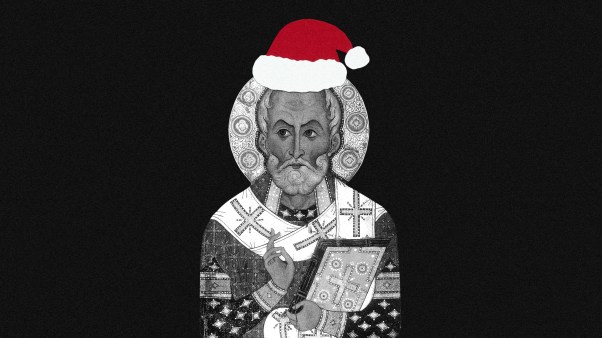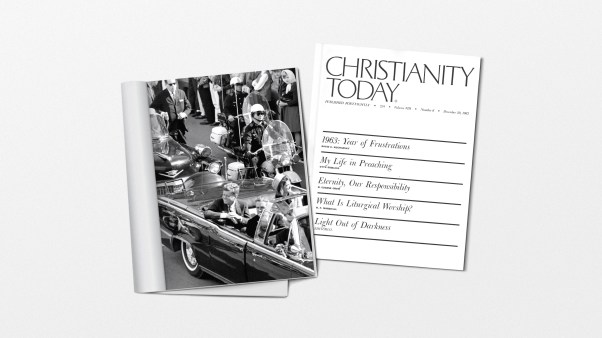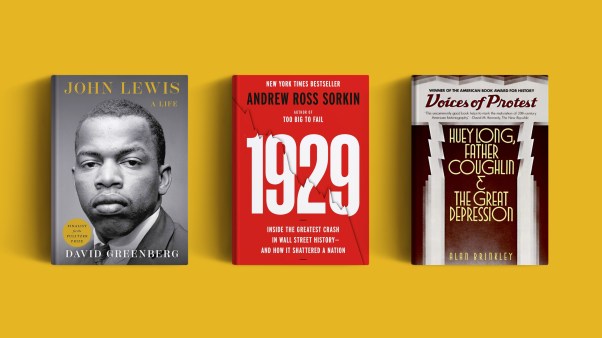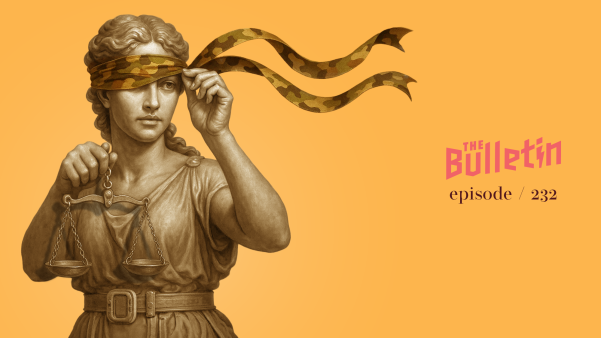The World in Solemn Stillness Lay
There is one view of Christmas I have never seen on a Christmas card, probably because no artist, not even William Blake, could do it justice. In Revelation 12, the Bible contains a scene that pulls back the curtain to give us a glimpse of Christmas as it looked from somewhere far beyond Andromeda: Christmas from God’s viewpoint.
The account in Revelation differs radically from the birth stories in the Gospels. Revelation does not mention shepherds and an infanticidal king; rather, it pictures a dragon leading a ferocious struggle in heaven. A woman clothed with the sun and wearing a crown of 12 stars cries out in pain as she is about to give birth. Suddenly, the enormous red dragon enters the picture, his tail sweeping a third of the stars out of the sky and flinging them to the earth. He crouches hungrily before the woman, eager to devour her child the moment it is born. At the last second, the infant is snatched away to safety, the woman flees into the desert, and all-out cosmic war begins.
Revelation is a strange book by any measure, and you would need to understand its style to make sense of this extraordinary scene. In daily life, two parallel histories occur simultaneously: one on earth and one in heaven. Revelation, however, views them together, allowing a quick look behind the scenes at the cosmic impact of what happens on earth. On earth, a baby was born, a king got wind of it, a chase ensued. In heaven, the Great Invasion had begun, a daring raid by the ruler of the forces of good into the universe’s seat of evil.
John Milton expressed this point of view majestically in Paradise Lost and Paradise Regained, poems that make heaven and hell the central focus and Earth a mere battleground for their clashes. The modern author J. B. Phillips also attempted such a point of view, on a much less epic scale, and last Christmas I turned to Phillips’s fantasy to try to escape my earthbound viewpoint.
In Phillips’s fantasy, a senior angel is showing a very young angel around the splendors of the universes. They view whirling galaxies and blazing suns and then flit across the infinite distances of space until at last they enter one particular galaxy of 500 billion stars.
As the two of them drew near to the star which we call our sun and to its circling planets, the senior angel pointed to a small and rather insignificant sphere turning very slowly on its axis. It looked as dull as a dirty tennis ball to the little angel, whose mind was filled with the size and glory of what he had seen.”I want you to watch that one particularly,” said the senior angel, pointing with his finger.”Well, it looks very small and rather dirty to me,” said the little angel. “What’s special about that one?”
When I first read Phillips’s fantasy, I thought of the pictures beamed back to Earth from the Apollo astronauts. They described our planet as “whole and round and beautiful and small,” a blue-green-and-tan globe suspended in space. Jim Lovell, reflecting on the scene later, said, “It was just another body, really, about four times bigger than the moon. But it held all the hope and all the life and all the things that the crew of Apollo 8 knew and loved. It was the most beautiful thing there was to see in all the heavens.”
To the little angel, though, Earth did not seem so impressive. He listened with shocked disbelief as the senior angel told him that this planet, small and insignificant and not overly clean, was the renowned Visited Planet.
“Do you mean that our great and glorious Prince went down in Person to this fifth-rate little ball? Why should He do a thing like that?” The little angel’s face wrinkled in disgust. “Do you mean to tell me,” he said, “that He stooped so low as to become one of those creeping, crawling creatures of that floating ball?” “I do, and I don’t think He would like you to call them ‘creeping, crawling creatures’ in that tone of voice. For, strange as it may seem to us, He loves them. He went down to visit them to lift them up to become like Him.”The little angel looked blank. Such a thought was almost beyond his comprehension.
It is almost beyond my comprehension, too, and yet I accept that this notion is the key to understanding Christmas and is, in fact, the touchstone of my faith. If it is true, this Bethlehem story, it is a story like no other. Never again need we wonder whether what happens on this dirty little tennis ball of a planet matters to the rest of the universe.
How did God the Father feel that night, helpless as any human father, as he watched his Son emerge smeared with blood to face a harsh, cold world? Lines from two different Christmas carols come to mind. One, “The little Lord Jesus, no crying he makes,” seems to me a sanitized version of what took place in Bethlehem. I imagine Jesus cried like any baby the night he entered the world, a world that would certainly give him much reason to cry as an adult. The second, a line from “O Little Town of Bethlehem,” seems as profoundly true today as it did two thousand years ago: “The hopes and fears of all the years / are met in thee tonight.”
Related Elsewhere
Philip Yancey writes a column for Christianity Today. The most recent, “Doctor’s Orders,” also has links to past columns.
Copyright © 1999 Christianity Today. Click for reprint information.








